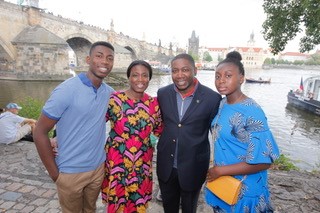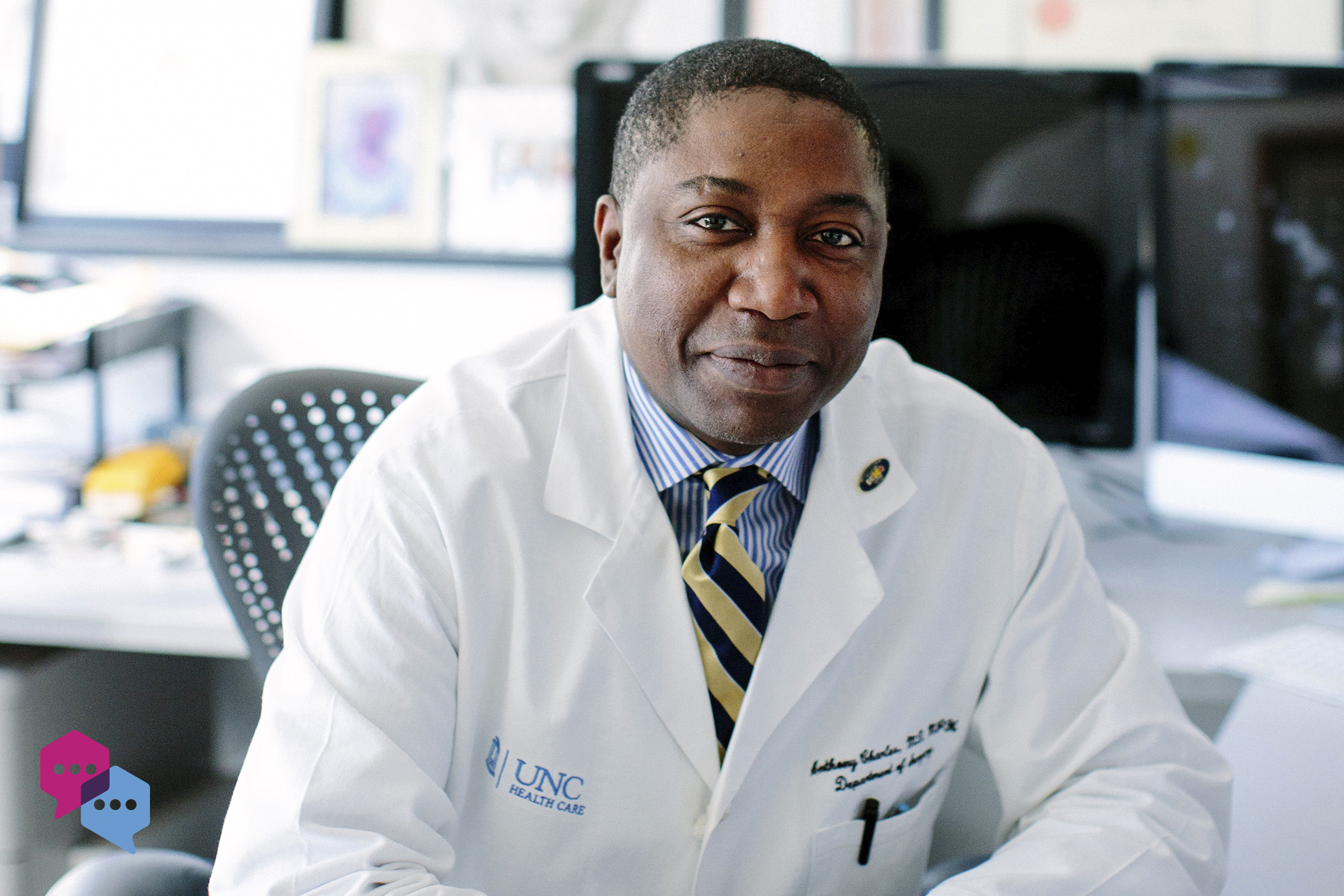Q: When you were a child, what was your response to this question: “What do you want to be when you grow up?”
A: I wanted to be a physician like my father. He was a very caring and patient man, and he really loved his profession. I remember going on rounds with him at the hospital when I was about 7 or 8 years old. A young child was screaming prior to us getting to his bedside. As my father approached, he started making faces and playing with the baby. The screaming ceased. I thought it was magical. I wanted those special powers. The ability to figure out what is wrong with a child that cannot verbalize a complaint — that’s what sparked my interest in medicine.
Q: Share the pivotal moment in your life that helped you choose your field of study.
A: When I was 9 years old, I sustained an injury while playing soccer, resulting in a laceration over my right eyebrow. There was blood everywhere, I was rushed to the hospital, and I had the laceration repaired. The surgeon told me that they could see my eyeballs moving through the wound. I thought that was pretty cool.

Charles (second from right) and his family in front of the Charles Bridge in Prague, Czech Republic, on their last pre-pandemic trip.
Q: Tell us about a time you encountered a tricky problem. How did you handle it and what did you learn from it?
A: During my surgical residency, I spent my research development time in a basic science lab in Santa Monica, California, thinking I would be a surgical oncologist. I was exploring the mechanism of programmed cell death in a breast cancer cell line. My cancer cell lines kept dying before I could perform my experiments, despite following all the protocols. I finally decided to order a fresh batch of cells. The prior cells I was using had been replicated too many times. The new cells worked. It took me three months to figure this out. I learned a lot about patience and the process of elimination. More importantly, I realized I did not want to be a basic scientist.
Q: Describe your research in 5 words.
A: Delivering better surgical care globally.
Q: What are your passions outside of research?
A: I believe that traveling is the best form of education and understanding the local foods gives better insight into that culture. Baking bread is a form of stress relief and mindfulness. Sometimes it turns out perfectly, and other times it is a complete disaster, but I always feel better.


